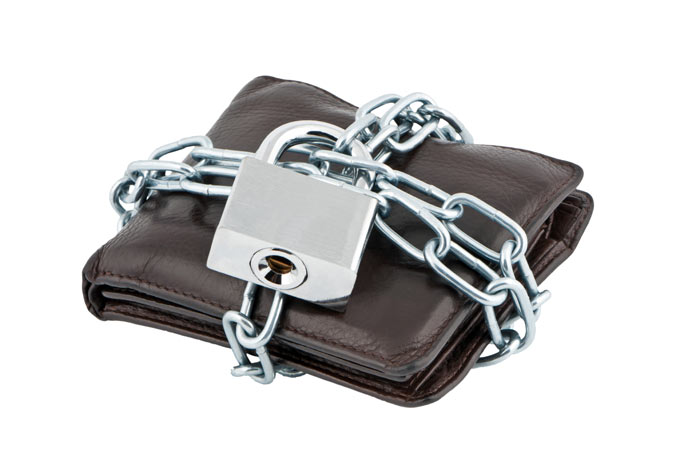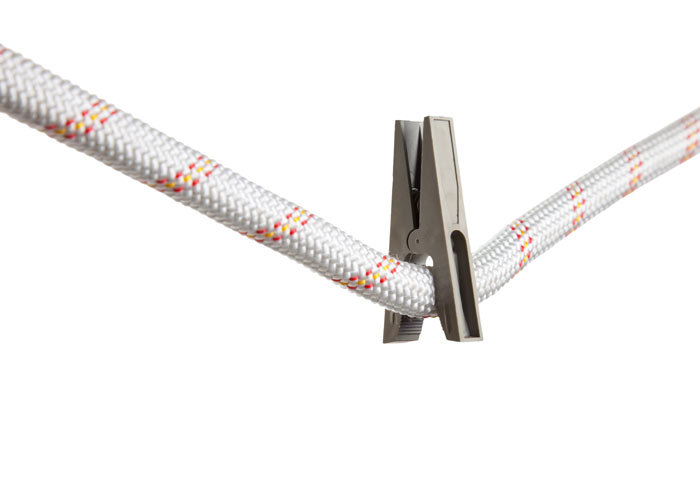
For starters, you need to know where your money is going. If you don’t live on a strict budget—and honestly, most people don’t—you only have a vague idea of how you’re spending those hard-earned dollars.
For a real wake-up call, take one entire month and write down everything you spend, whether it’s for gas, rent, groceries, insurance premiums, car payment, cat food or coffee. Don’t just estimate! Save receipts so you know actual costs. This exercise will open your eyes to where your money is going and let you better determine how you can trim a little here and there.
For ideas on how to keep more cash in your pocket, read on. Even if you only adopt a few of these suggestions, every dollar adds up. Here’s to a more thrifty you!
Generally Speaking…
1. Start “no-spend” weekends.
Select one weekend each month and make it a goal not to spend any money from Friday night until Monday morning. If you get everyone in the family involved, it can actually become a fun challenge instead of an exercise in deprivation. (It’s also a great way for kids to start learning about the reality of finances.) Add up what you didn’t spend and put it in your savings account.
2. Save your $1 bills.
One friend I know made it a point never to spend a dollar bill. If he got change back from a larger bill, he’d pull out the dollars from his wallet and put them in a jar. Every month, he’d take those to the bank to put in a savings account. He saved hundreds this way. You can do this with loose change, but dollars add up more quickly.
3. Cut retail spending.
It’s become trendy to shop at consignment and thrift stores—and for good reason. You can find great deals on everything from clothes to furniture to accessories. Of course, there are things you want to buy new (Used underwear? No, thank you!), but you’ll find bargains galore on almost everything else.
4. Think short term; save long term.
It’s more realistic for most people to set weekly savings goals instead of yearly. Put just $20 aside each week and you’ll save $1,040 at the end of one year.
In The Home…
5. Ditch the bottle.
Drinking water is a good thing. We could all do more of it, but it doesn’t have to be pricey. Americans spend nearly $12 billon annually on bottled water, or an average of $520 per family. If your tap water doesn’t taste good, invest in a filter. It’s a one-time cost that will save big over time.
6. Watch that thermostat.
To maximize energy savings, keep the thermostat setting at 68º or less in the winter and no lower than 78º during the summer.
7. Air dry dishes.
Even if you use a dishwasher, there’s no rule you have to use the heat-drying cycle, which uses 15 percent or more electricity than the air-dry cycle.
8. Banish snack-size purchases.
Don’t pay for convenience when you can quickly and easily make your own “snack-size” servings. Buy the large size pudding, applesauce, chips, pretzels, canned fruit, etc., and break them down into individual servings for lunches.
9. Get cookin’.
Make plans with budget-conscious friends to cook together and share meals. There are plenty of suggestions online for forming a “freezer club.” (Just do an online search for “freezer meal club ideas.”) You and several friends cook an agreed-upon variety of meals, package and split them amongst yourselves to freeze ahead for the month. This plan saves time and money.
10. Unplug electrical items when not in use.
Studies show that as much as 10 percent of the energy used in your home annually is due to “phantom power consumption.” No, we’re not talking ghosts but rather the electricity wasted by all the electrical devices—from television to computer to coffee maker to cell phone charger—when not in use. Make this easier to do by putting them on surge protecting power strips and turning off the strip when you’re not using what’s plugged into it.
11. Hang ‘em up.
Your clothes, that is. Only your refrigerator uses more electricity than your dryer. Trim your electric bill by using a clothesline and drying your clothes outside. No dryer sheet can substitute for that fresh, “dried-in-the-sunshine” smell. If you don’t have space for a clothesline, just set up a simple drying rack inside. Another bonus: Clothes last longer when you don’t use a dryer.

12. Skip the hot water.
Do laundry with cold water unless you have a specific load that demands hot water.
Cut Costs On Eating Out…
13. Skip the beverages.
The iced tea I ordered last weekend at a local restaurant cost $2.99. We’re talking simple sweet tea, nothing fancy, and I didn’t even get a refill. At those prices, a family of three or four will spend the price of one entrée just by ordering beverages… and not even alcoholic ones! Coffee, tea and soda are huge mark-ups for restaurants, so forego the drinks and just ask for water with lemon or lime. You’ll save cash and calories.
14. Share or pack it up.
Most restaurant portions are at least double (or even triple) standard portion sizes. Try sharing an entrée or ask your server to pack up half your entrée in a to-go container before it’s served. Voilà. Next day’s lunch is handled. Another few dollars saved.
15. Do with one less latte.
If you make a Starbucks stop every day, or even several times a week, try skipping one. Stash the dollars you’d spend on that drink in a jar and watch them add up over time. (Note: If a daily coffee shop stop makes you truly happy, feel free to ignore this advice and save your $4 somewhere else.)
Celebrating Family & Friends…
16. Get creative.
Entertainment doesn’t necessarily mean dinner and a movie. Get creative and look into local free activities, such as outdoor concerts or festivals. Another plus is that you can count some of these outings as exercise, as you’ll likely be walking.
17. Make a “game night” date.
You don’t need to go out on the town and spend money to have a blast. Recruit a handful of like-minded pals for a game night and potluck dinner at your place. Ask everyone to bring a dish to contribute to the meal and break out Pictionary, Taboo, Gestures, Cranium or similar games. You’ve probably forgotten how good it feels to laugh that much.
18. Host kids’ parties yourself
Chuck E. Cheese and similar establishments are my own personal Guantanamo Bay. Lock me in one of those places filled with kids on a sugar rush, turn up the volume and I’d spill all secret intel in no time. No torture necessary. But seriously, you can save big and have a much less crazed (not to mention less noisy) birthday party for your little darlings by hosting the party at home or at a local park. It will take a little more creativity than just turning them loose on the video games, but it’s sure to save bucks.
19. Shop wisely; shop early.
Being thrifty doesn’t mean you never give gifts. It just means you revamp your shopping strategy. Instead of waiting to buy a present until shortly before a holiday or birthday, make a point of shopping year-round for the people you regularly buy for. This way you can take advantage of a great sale, even if your BFF’s birthday is months away. I keep a “gift store” in one dresser, stashing away all the items I buy ahead. I keep track of the “inventory” in a journal, jotting down what I’ve bought and who it’s for. When it’s birthday time, all I have to do is whip out the wrapping paper and ribbons. You’ll save money and stress; plus you’ll have thoughtful gifts instead of something you rush out to buy at the last minute.
Vehicle-Related Savings…
20. Keep driving it.
Before the recession, the average American bought a new car every three to five years. But with the average new car monthly loan payment running $452, according to Experian, it only makes sense to pay off your vehicle and keep driving it for several years before buying another. Your insurance will also be less with a vehicle that isn’t brand-new.
21. Opt for pre-owned.
When you do need another vehicle, consider pre-owned instead of new. You’ll save thousands buying a low mileage, late model vehicle compared to this year’s model on the dealer’s lot. And if you absolutely must have that “new car” smell, there’s a spray for that.
22. Stay on top of maintenance.
That means regular oil changes, rotating tires and keeping them properly inflated and not ignoring that funny sound your car’s making. Mechanics will tell you many expensive repairs can be avoided (or the cost reduced) if car owners just paid attention to detail and routine maintenance.
23. Reexamine insurance policies.
Most insurance policies—from homeowners to auto to health—have opportunities for cost cutting. Do you really need collision coverage on that older vehicle? What is your deductible? Just raising your policy deductible will reduce the cost of your premium. Ask your agent about ways to trim dollars off your policies without jeopardizing protection.
24. Compare policies.
The Internet makes it easy to compare insurance quotes in a matter of minutes. Doing so each year before you renew a policy can save money, sometimes more than you’d guess.






